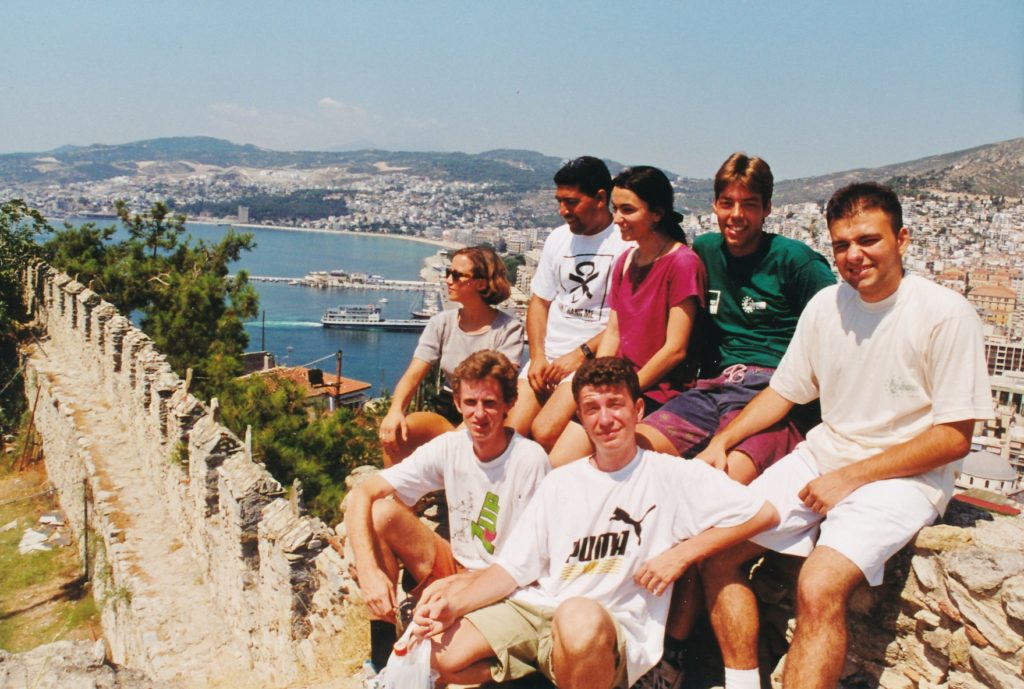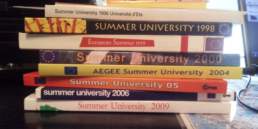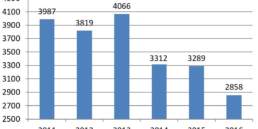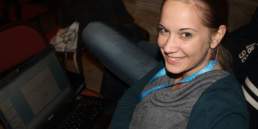AEGEE might face a drop in the number of members. The reason is the decreasing number of Summer Universities. Only 55 courses are scheduled to take place in 2018, compared to 65 last year and 75 two years ago. That’s a drop of 20 courses in just two years. The SUCT is trying to compensate it with a new type of summer activity of shorter duration and less thematic requirements, but it is yet to be seen whether this will be a mere band aid or a new strategy for a turnaround.

Probably you are tired of people talking about the “shrinking network”. There is something closely connected: the shrinking number of Summer Universities. Why is it dangerous? Well, the SUs are AEGEE’s most important recruiting tool. The Summer University is *the* activity that most people attend as their first big event.
From 4000 applicants to 2276 in four years
The crisis of AEGEE’s hallmark event started four years ago. In 2013 AEGEE still had around 4000 SU applicants – this was a typical number for Summer Universities since the mid-90ies. In 2014 the number dropped to 3312 and continued to fall. Last year only 2276 people applied for a Summer University – that’s 56% of the number of applicants in 2013! One can only guess what happens when there will be ten courses less this year.
Less and less antennae involved
Some more figures? Here you are: In 2015, three years ago, the number of SUs dropped to 68 – that was 12 less than in the previous year. The number of 80 courses had actually been quite stable in the past decade. In 2016 the number recovered and 75 courses were offered. Some people already claimed that the low number of 68 in 2015 had just been a statistical exception and there was no reason to panic.
However, those 75 courses were organised by 101 antennae, compared to 100 the year before. Why is that significant? Well, the average of the years before was around 115 SU organising locals. In the meantime also this number decreased – this year only 86 antennae will be involved in an SU. Yes, the network is shrinking, but not as fast as the number of SU organising locals.
Consequences for the network

The lower number of courses means less available places. 1569 members can go to an SU this year – 320 less than last year. Considering that returning SU participants for the sustainability of smaller locals, this is not a good sign for the development of the network and needs to be compensated somehow.
There are many explanation attempts for the decreasing number of offered courses in AEGEE’s most prestigious project:
- The economic crisis in the South and East of Europe, which made it harder to organise an SU, was mentioned often in past years
- Lack of organising skills was also mentioned
However, the economic crisis is over, the economies in Europe are growing substantially this year. And regarding skills: since the Summer University Coordination Team (SUCT) offered more and shorter Summer University Project Schools (SUPS), more people acquired organisational knowledge. So how does this go together?
When it comes to the shrinking number of applicants, there are also many theories:
- Less courses offered means it’s harder to attract people
- Increasing costs for SUs: in recent years the fees went up and in addition there has been a specific lack of cheaper courses. In this matter the new short summer courses that the SUCT is planning might help
- Deteriorating exchange rates to the Euro for example in Turkey and Ukraine made it harder to apply for people from some countries
- Change in society is a popular explanation: young people got more individualistic and prefer to go on holidays with their friends instead of joining a new association
- Drop in content quality is also a valid reason. If people can go to the beach with their friends, AEGEE has to offer more: languages, skills, real lectures and workshops on history and culture instead of a simply excursion to old monuments
- Wrong promotion. AEGEE is underselling itself. Some outgoing responsibles tell potential applicants that an SU us just about drinks, sun and fun – without focusing on content, skills and intercultural knowledge that is to gain. Last year some participants at one of the very few language course SU actually complained about the classes, because they just expected sun and fun…
What can AEGEE do to make the turnaround? New SU types? Making 20 hours of tuition per week obligatory? Or a “stick and carrot” approach? Meaning: giving financial incentives and honorary titles to quality SUs (“Five Star Antenna of 2018”) and minus points in the antenna criteria if an SU doesn’t fulfil its promises?

AEGEE needs a quality offensive
Let’s face it: the content quality of Summer Universities is really low today. Most of them actually don’t deserve the word “university”. 20 years ago most SUs had a real content programme – and what is offered today as core programme was the leisure time programme back then. Alright, not every Summer University in the past was a shining example at all. But in general the programme was richer in content.
Unfortunately AEGEE has the tendency to lower its standards and not to increase them. But that doesn’t help attracting the idealistic members with a “can do” attitude that is necessary for the sustainability of the network.
Maybe it’s a start to check more thoroughly the quality of the events – and take action if the quality is low. The programme item “Getting to know the culture” simply cannot mean a simple excursion to a famous beach. The Summer Universities need a quality offensive now, when the project goes into its fourth decade.




